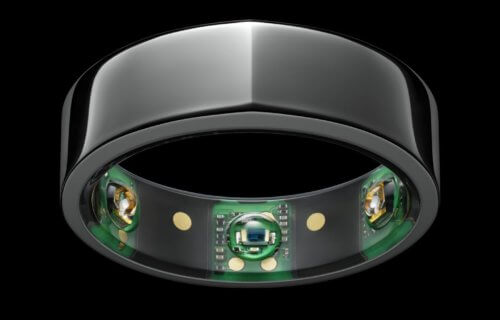SAN FRANCISCO, Calif. — Asymptomatic cases of COVID-19 are a constant source of worry for anyone traveling outside this year. While it may seem like some people with the virus have no symptoms at all, researchers in California say some carriers actually have symptoms that are too subtle to notice. A new study finds wearable technology may hold the answer to detecting COVID-19 in people who may not know they’re sick.
A team from the University of California-San Francisco and San Diego say a smart ring which continually monitors temperature changes could help alert people they’re developing the signs of a coronavirus infection. A study of 50 people who had previously been diagnosed with COVID-19 discovered that commercially available smart ring devices can accurately detect rising temperatures in patients with COVID symptoms.
Researchers say the smart ring spotted a fever in 38 of the 50 participants when other symptoms either went unreported or unnoticed. The Centers for Disease Control and Prevention say between 10 and 70 percent of COVID-19 cases could be asymptomatic.
Not every fever means there’s a problem
The study authors point out that they analyzed weeks of temperature data from every participant. They caution that just because one person has a higher temperature than normal doesn’t mean there’s necessarily a problem.
“Many factors impact body temperature,” says UCSF’s principal investigator and senior author Ashley Mason in a university release. “Single-point temperature measurement is not very meaningful. People go in and out of fever, and a temperature that is clearly elevated for one person may not be a major aberration for another person. Continual temperature information can better identify fever.”
Are asymptomatic COVID cases really asymptomatic?
Although researchers note this test uses a study group too small to draw a firm conclusion about the entire population, they add detecting minor hints of an infection early on could reveal that even asymptomatic patients still show signs of the virus.
“This raises the question of how many asymptomatic cases are truly asymptomatic and how many might just be unnoticed or unreported,” says first author Benjamin Smarr of UC San Diego. “By using wearable technology, we’re able to query the body directly.”
The examine this aspect of the virus, researchers worked with Finnish startup Oura to study over 65,000 people using the company’s wearable sensor. The rings link to a mobile app which monitors the wearer’s sleep quality, heart rate, respiratory patterns, and temperature.
Participants in this study also reported having coronavirus however, researchers were also able to gather biomonitoring data from the weeks before they contracted COVID-19. While no-touch thermometers can quickly screen for fever by detecting infrared radiation, study authors say this technology is much more limited than a smart ring. The Oura ring keeps monitoring temperature changes at all times, which can put sudden jumps or drops in temperature into a proper frame of reference.
“Context matters in temperature assessment,” Smarr says.
Smart ring can detect other symptoms
Aside from temperature monitoring, researchers say a smart ring also spots other signs that the wearer is getting sick. Increases and decreases in heart rate and increased respiration rates can all signal the onset of viruses like the flu or COVID-19.
Data from the larger study is now helping to create an algorithm which can properly spot the signs of an emerging infection. Mason’s team says the program would then alert the wearer to complete a COVID-19 test kit. Study authors plan to continue their work on the algorithm with a new group of 4,000 participants.
“The hope is that people infected with COVID will be able to prepare and isolate sooner, call their doctor sooner, notify any folks they’ve been in contact with sooner, and not spread the virus,” Mason concludes.
The study appears in the journal Scientific Reports.
